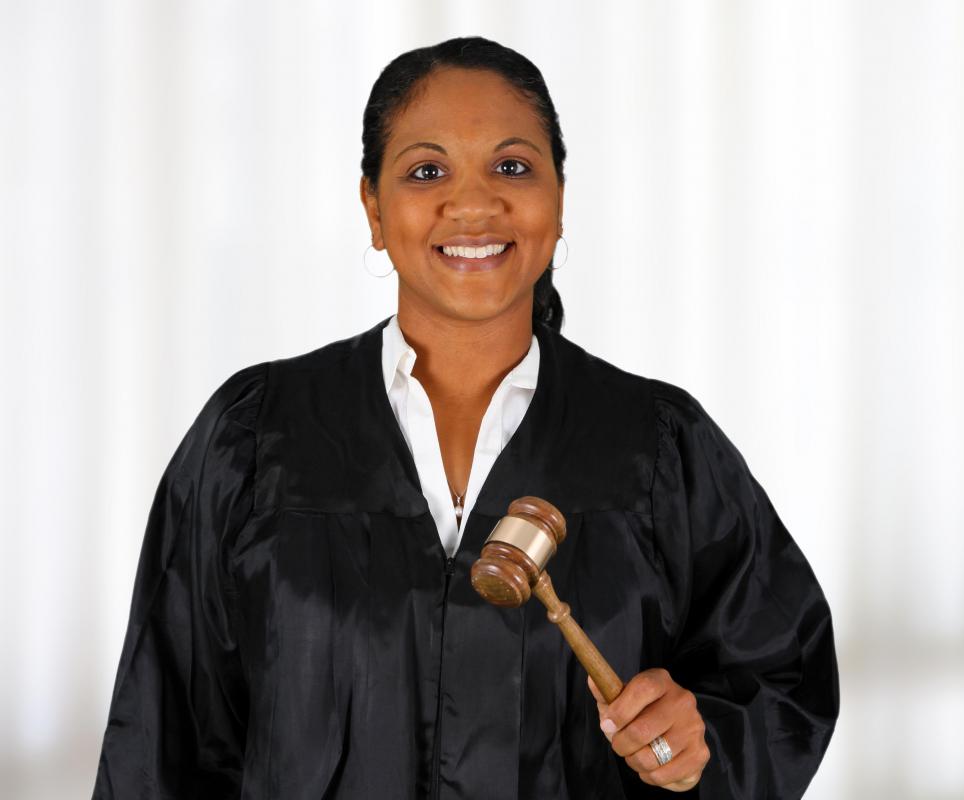At WiseGEEK, we're committed to delivering accurate, trustworthy information. Our expert-authored content is rigorously fact-checked and sourced from credible authorities. Discover how we uphold the highest standards in providing you with reliable knowledge.
What is a Fair Trial?
The term fair trial is a legal and ethical concept used to describe the procedural rules of a court and the treatment of those accused of a crime. According to democratic ideals, a fair trial is one in which the defendant's rights are respected throughout the trial, the trial is handled according to due process and established law, and the judgment is handed down by a neutral body. Ensuring a fair trial is what governs many of the standard procedural rules of courts in many regions, but the right to this treatment is by no means globally ensured. Many human rights groups seek to improve trial legislation throughout the world to increase the opportunity for justice worldwide.
Sometimes the right to a fair trial is codified in declarations of rights; there is language about trial rights in the United States Constitution, the European Convention of Human Rights, and other national and international documents. The idea of this type of inherent and codified right is an ancient one; among other examples, it was part of the reason behind public legal debates in the ancient Roman forum. With the rise of monarchs and dictators who could pass judgment regardless of trial, it is easy to see how quickly this right could be dissolved if not codified and strictly followed on all levels of judgment.

A fair trial generally requires two things: the neutrality of the judge or jury, and the just treatment of the defendant. The concept of “innocent until proven otherwise” is an important one when considering this issue, as an assumption of guilt before a duly processed trial undermines the whole concept of neutrality. Despite the Sixth Amendment of the US Constitution, many stark examples of unfair trials come from the post-slavery period in the Southern United States, when black people accused of crimes were often faced with highly prejudiced juries and sometimes even handed over to mob justice before a trial was complete.

It is for the reason of neutrality that some trials are moved out of the area in which the crime was committed; for instance, if a person is accused of murdering the beloved mayor of a small town, it is plausible to suggest that a local jury would likely be unable to maintain neutrality. Despite the very real and understandable rage of a local populace or the family of a victim with a legitimate grievance against an accused person, it is the requirement of a fair trial that a court is an instrument of justice and legality, not revenge.

The concept of trial fairness is still a matter of some controversy, even in areas that have had clear laws on the subject for centuries. The rise of terrorism and the wars of the 21st century have raised a highly controversial question about the application of fair trial laws to foreign prisoners. If, for instance, a nation captures a terrorist who is not a citizen, does that person qualify for a fair trial? This, as well as many other subtly distinctive questions, forms a great bulk of modern legal discussion.
AS FEATURED ON:
AS FEATURED ON:















Discussion Comments
so if you are a prisoner from another country do you get a fair trial?
Post your comments